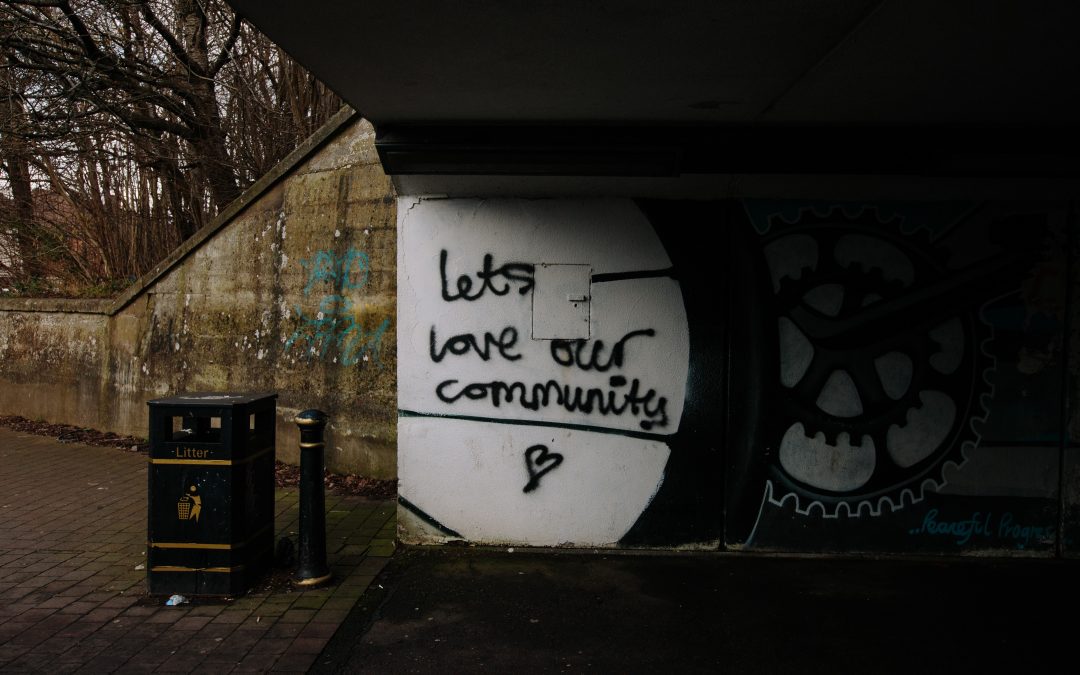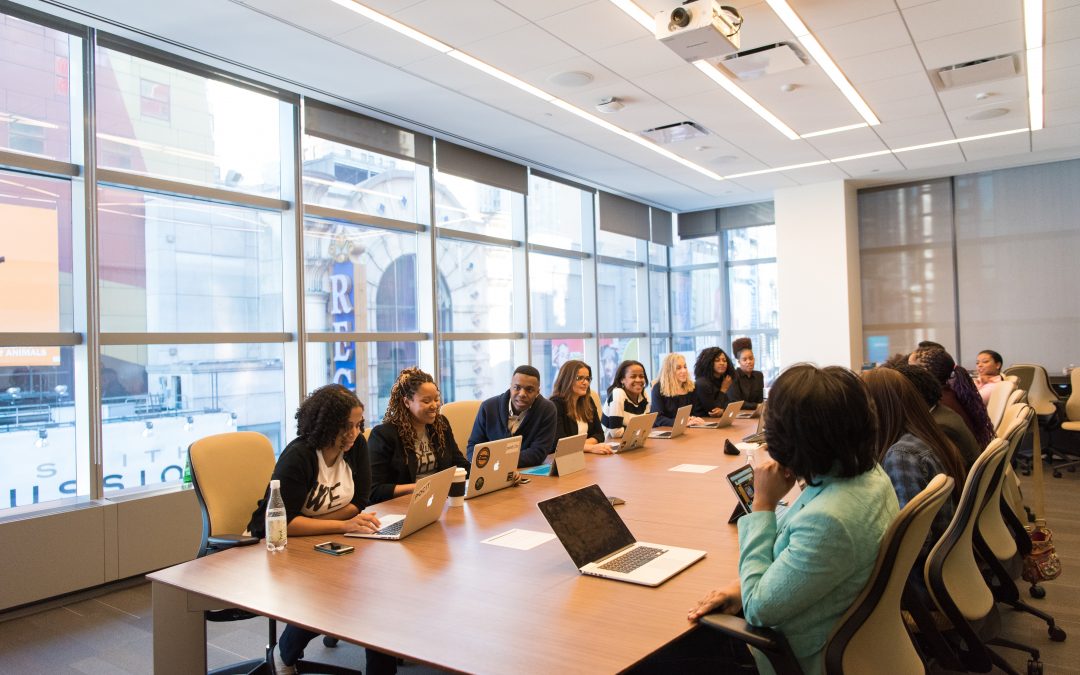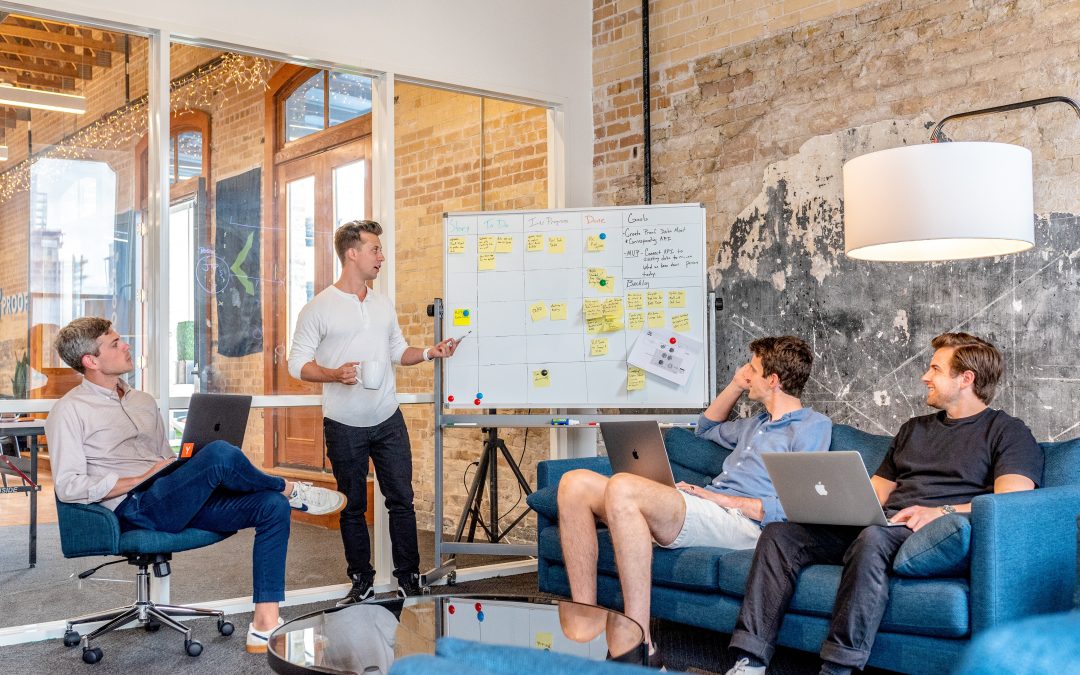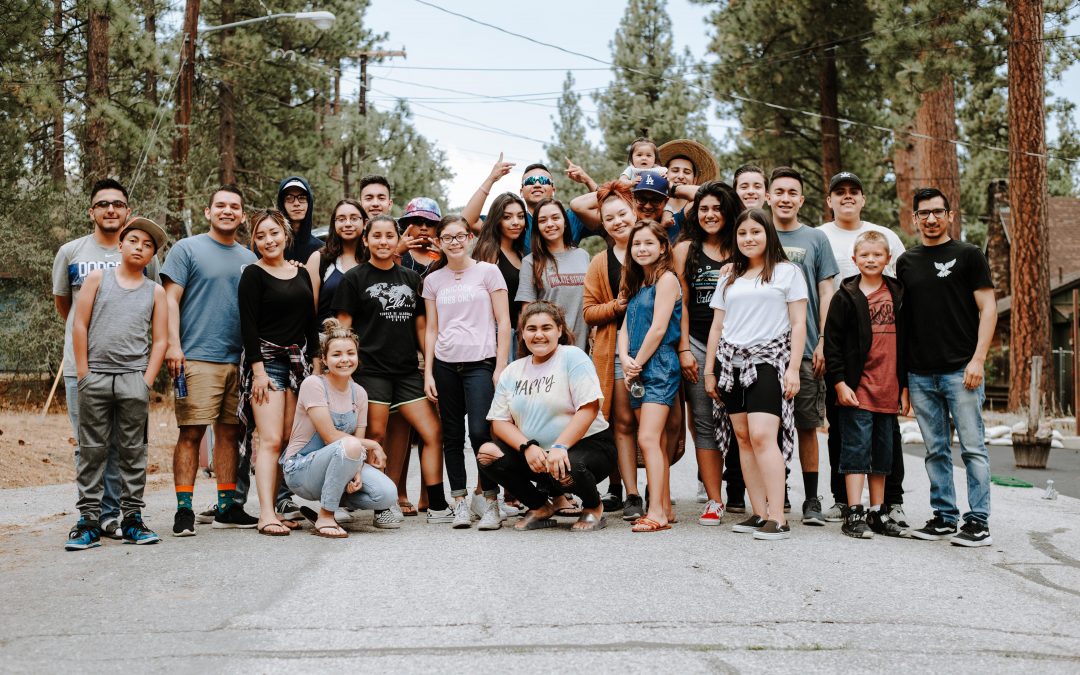
The Increasing Importance of Community
In recent years, I have been getting the distinct impression that the Open Source community is playing an increasing important role in distributions and business. Once pushed to the side, the community is now something that the large distributors seem to be actively encouraging and working with. This trend seems to be continuing with with more and more community led distributions such as [Ubuntu](https://www.ubuntu.com), [Fedora](https://fedora.redhat.com/), [OpenSuSE](https://en.opensuse.org/Welcome_to_openSUSE.org) and now [Freespire](https://freespire.org/).
To explore this further, last night I wrote [The Increasing Importance of Community](https://oreillynet.com/pub/wlg/9330). The article chronicles this change in focus and looks at why this could be. As ever, comments are always welcome. 🙂
## Planet Advocacy looking oh so schweeeeet
Thanks to the superb work of my friend and yours, nlindblad, [Planet Advocacy](https://planetadvocacy.jonobacon.com/) has had something of a makeover. It is now looking cool and ready to rule.
Now, onto some further business. Although the snazzy design is up, we are still afflicted by this unfortunate relic on the site:

So, dear lazyweb, I challenge you to create an iconic representation of the sharing of knowledge of good honest advocacy, that takes into account community and business, encompasses trust, and all within 136×136. Any contenders?
Related to Planet Advocacy, I completely forgot to mention that [Simon Morris](https://beerandspeech.org/) has now been added. Simon is one of the chaps at [Greater London Linux User Group](https://www.gllug.org.uk/), one of the stops on the UK LUG tour a few weeks back. I did my *On the Front Line: Convincing People the Inconvincible* talk there and Simon has started blogging about advocacy in an effort to help build up the advocacy community. Welcome Simon!

Looky here, you
Rather coincidentally, [Federico’s post](https://primates.ximian.com/~federico/news-2006-04.html#limiting-your-repaint-rate) lines up with some investigations that Frank Smith and I have been taking into the Jokosher drawing code. In Jokosher we tend to get around 20 bus messages from GStreamer every second that report levels and the composition playhead position. These bus messages are used to update parts of the GUI.
The problem is that the GUI is not only getting updates 20 times a second, but more like 120 times a second. Last night I spent some time looking into this and deduced that we are not only updating the GUI way too much, but there seems to be lots of duplication and updates of non-visible GUI items (such as updating the VU meters on the mixing view when in the recording view, which does not show VU meters). The plan is to optimise much of this.
For more details on this drawing code adventure, see [the mailing list thread](https://jasonfield.com/pipermail/jonoedit/2006-April/000317.html).
I think the audio engine is beginning to solidify, and Edward Hervey is looking into a possible gnonlin bug with internal decode bins that might be blighting us. Hopefully he can nail this soon so we can get an updated gnonlin in Dapper before the freeze sets.

You sure you want this on your planet?
Well, it appears [Mr Schaller](https://www.linuxrising.org/) had added myself and a bunch of other [Jokosher](https://www.jokosher.org/) hackers to [Planet GStreamer](https://gstreamer.freedesktop.org/planet/). Although I can’t guarantee all of my posts will be on topic, I hope the ones that are on-topic are actually interesting. If not, here is a picture of the Chinny Raccoon:

Recently I have been trying to straighten out the audio sub-system in Jokosher. The original code is fairly inefficient and was mainly implemented to get something working, and I am spreading the pipeline elements out across the different conceptual parts of the code . Last night Elleo and I spent a couple of hours debugging much of this, and in the end it turned out to be a likely bug in Gnonlin. Those kinds of bugs are really tough to figure out, particularly when you are still pretty wet behind the ears when it comes to GStreamer.
Anyway, today I spoke to [Edward](https://www.advogato.org/person/bilboed/) about it and he confirmed it was likely to be a bug. Amazingly, today we also saw a new version of Gnonlin hit dapper. With this new version, `pad-added` seems to be emitted more consistently than before – I am just trying to figure out a bug in which I can deal with the `pad-added` and `pad-removed` signals and keep the pipeline links working fine. Hopefully then we should have something running. Thanks to the dudes in the GStreamer IRC channel that have been helping with some of this.
In other news, my [Jokosher talk](https://guadec.org/node/185) has been accepted at this years [GUADEC](https://guadec.org/) conference in Spain. This is the abstract:
> “Once upon a time, there was a little radio show called LUGRadio. The devilishly handsome chap who mixed and edited the show was afflicted with the uncomfortable premise of resorting to Windows to make the show for the many peasants across the land. His reasoning was apt – Open Source audio editors failed to combine the masterful trickery and ease-of-use that he craved so longingly. Despite his efforts to make clear this sticky wicket, much flak ensued from the peasants. What a pickle”.
> “When pressed on the specifics of of why Open Source tools were at fault, the aforementioned gloriously bearded tweaker crafted a design for his perfect multi-tracker, suitably sodomised by his usability angst. After he published such thoughts to the interconnected worldwide abacus, he thought nothing more. Days passed and upon a chance encounter with a scribe of wiki, he noticed work had begun in earnest on such an endeavour, driven by a crack team of committed and talented peasants. The bearded one was suitably agog and threw both feet in to also dispense such contributions”.
> And so Jokosher was born; the all singing, all dancing GNOME-Cairo-GStreamer-PyGTK-Tango injected multi-track editor. But, this is only the start of the story…
> In this talk Jono Bacon will talk about how Jokosher came about, the core design goals, the choice of technology, the challenges faced with such an ambitious project, the progress made and the plans for the future. All of this will be suitably encased in a fun, loose and entertaining presentation.
It is looking like the talk will be scheduled for the Monday, but when this is confirmed I will add it to my events calendar.
—–

Die spiders, die
You know, I *hate* spiders. Sure, I know they perform some important ecological function that is critical in the scheme of things, but I just hate the damn creatures. This uniformed hatred doesn’t just apply to big spiders, no, it also includes those tiny spiders (often known as money spiders, to sugar the pill) who are just as rambunctiously evil and foreboding.
Last night I got in from the LUG and went upstairs to bed. I was in the bedroom talking to Sooz and felt a tickling on the back of my neck. I ignored it and then noticed that the tickling appeared to be walking up my neck. At this point I screamed like a little girl and flicked whatever it was off the back of my quivering body. As I glanced at the bed I noticed a monster spider crawling over the covers. Argh! I ran for cover and Sooz calmly covered it with a glass and thew it outside. If I had the guts to go anywhere near it, I would have squashed that bugger with the boot of doom. Ugh.
Yes, spiders are important, but how about we eradicate all of them and see how we get on? I am sure we can fashion together some kind of device to eat flies and things…

Applications, not the OS
[Simon](https://beerandspeech.org/index.php?/archives/78-Advocacy-Getting-Cross.html), I entirely agree with you that much of the problem with advocacy has been too much focus on Operating Systems. I remember my ex brother-in-law once said to me that he didn’t use Linux because he ‘didn’t want to battle with the OS’. He just wanted to get on and get stuff done.
Part of the problem is, as you said, many of us are OS junkies. The difficulty with being an OS junkie is that sometimes reality can get a little skewed. A good example of this is the now normal behaviour of being able to plug in a USB device and a window will pop up to allow you to do something straight away. Much of this functionality solidified in the form of Project Utopia, and when this got into mainline distributions, the junkies went nuts about it. This excitement was obviously warranted for a community of people who were so used to having to manually mount devices, but it didn’t play well for people looking to move over to Linux from Windows. These Windows users were reading about how the new cutting edge Linux distros were going to have this functionality and they would often respond with something along the lines of ‘so what? that’s been in Windows for years’. An entirely reasonable point.
I agree with you that applications are important to be advocated, they are vehicles for branding and sub-communities of users, but we must *always* remember to focus on the effect of those applications (remember the quarter inch hole from the [talk](https://archivedblog.jonobacon.com/events/jonobacon-onthefrontline.swf)?) as the primary goal. The other interesting thing with applications is that people need to feel Comfort + 1; they need to feel like it does everything that they need it to do, but also that little bit more. All of us have ambitions to get good at different things, and its comforting to know that scope of the applications allow us to go where want to. You could see this Comfort + 1 factor when the Linux desktop was beginning to kick off – we started seeing the first wave of full featured desktop applications with tools such as Mozilla, StarOffice, Konqueror, Gnumeric, KDevelop and more. These tools were turning into comprehensive applications and made the platform feel more comfortable and mature. Sure, the command tools have done this for years, but we have a different generation of typical user.

Freespire and advocating diversity
So, [it has been officially announced](https://www.freespire.org/) – we now have another community driven free Linux distribution, this time in the form of Freespire. Those of you with eagle eyes, or possibly stalker-like tendencies may have also noticed that I am [on the leadership board](https://www.freespire.org/community/leadership#board). At this point, veteran readers may wonder why this is, given my obvious love of Ubuntu and criticism of Linspire in the past. Well, I figured I should explain.
Kevin Carmony, the CEO of Linspire is a friend of mine, and every so often we have a natter on the phone about this, that, and everything else. Within these conversations I have always been utterly straight with Kevin, letting him know my thoughts of the positive and negative areas of his business. Anyway, a while back Kevin spoke to me under NDA about Freespire and asked for my thoughts. We had an interesting conversation, and I concluded that Freespire was a step in the right direction, but could only work if a true understanding of community collaboration was met. This community position would make or break Freespire, and Linspire.
A few days later Kevin asked if I would like to be part of the Leadership board. The board basically consists of a small group of individuals who will form the basis for discussion about where Freespire is heading. The impression Kevin gave me was that the board is intended to bring a maturity and objectivity to Freespire from the outset, and the board would not rule the project with any kind of fist, iron or otherwise. I figured this would be interesting and accepted his invitation.
So, why? Well, as an advocate of Open Source, one of my many objectives has been to bring balance to the debate. The most basic, fundamental concept in good advocacy is to understand and deliver pure objectivity wherever possible. Sure, its OK to have an opinion and to pick a winner, but you should never allow this position to cloud your objectivity when identifying which technology is right for someone. This is where I feel I can make a contribution. I don’t use Freespire, and its unlikely (but not impossible) that I will, but I do have an interest in ensuring that the community process is conducted correctly. This process is the basis for the success of a distribution. If it fails, Linspire may find themselves in troubled waters, but if it succeeds it will bring even more diversity and competition to an already excitingly diverse industry. These potential wins are good for Linspire and Open Source.
While doing my desktop presentation on the UK LUG tour, a couple of people from different LUGs asked me why I only focussed on KDE and GNOME, and not Xfce, Afterstep, Enlightment and the many other desktops available. This is an important and critical question, but slightly confused by the common position of the current market. Currently the KDE and GNOME desktops offer a solution for the general consumer – the mums and dads of the world. My presentation expressly focussed on these consumers, and applied my own philosophy to the Open Source software offering for them. It is fundamentally important to remember however, that one of our richest assets in the Open Source community is that we are not merely limited by these offerings, and our target audience does not need to be squeezed into mum and dad shaped boxes.
Ever since I became a member of this community I have met hundreds of different types of people on my travels – consumers, gamers, programmers, artists, musicians, curmudgeons, usability boffins, performance freaks, minimalists, philosophers, engineers, scientists, preachers, educators and more. Each one of these diverse people have different needs when it comes to computers. With the desktop playing an increasingly personal role in our lives, the personality of the desktop needs to match the personality of the user more closely. There isn’t a way of doing this in the traditional proprietary software market – the engineering costs are just too high. But, with the diversity, expertise and passion of the Open Source community, we are making this happen today, and who knows what will happen tomorrow.
Diversity is key, and this is why I signed up as a member of the Freespire board. Whether I use Freespire is really neither here or there, the process is where I can contribute. This is one of the benefits of being an independent advocate and consultant – I can take a cross-distribution position. When my role at OpenAdvantage comes to and end as the project closes, I will no doubt end up working for vendor such as Canonical, Red Hat, Novell or Linspire, and when this happens I may be asked to officially refrain from contributing to competing products. Until that happens, I am keen to help all distributors evolve and position Open Source in the best way possible.

CSS gurus required – fame guaranteed
I am pleased to announce some new additions to [Planet Advocacy](https://planetadvocacy.jonobacon.com/):
* Chris DiBona – Open Source dude at Google and author. Chris has been kicking around the Open Source community for a number of years, so his boots need to muddy the p.a carpet.
* Paul Cooper – Paul is my boss at OpenAdvantage and he works as an Open Source advocate, as I do. He often writes about how to make the jump to Open Source for sysadmins.
* Tim Joyce – Tim emailed me to be added to p.a and is keen to help advocate Open Source in different ways. Welcome to the club Tim!
Now, if you look at Planet Advocacy, you can see it looks rather uninteresting and bland. Ideally we want it to look cool, smooth and ready to rule. I know a bunch of you are CSS gurus and we are looking for one of you talented little scamps to knock up a suitably impressive stylesheet for us. Naturally, you will receive our adoration and fame/fortune will follow.
Send over you designs to me [here](mailto:[email protected])
—–

UK LUG TOUR: Oxford and Gloucester
Well, the UK LUG Tour is complete, and its been a great success. On the final day we managed to break down the barriers of human endurance and cram in two dates to our busy schedule of driving, eating, driving, eating and speaking. Despite the [rather long hike back from Wales](https://jonobacon.com/viewcomments.php?id=671), we met earlyish the following day and kicked off with some fuel from McDonalds. We then came back to my place to make some preparations, catch up on email and blog about the Welsh adventure.
At around 11.30 we hopped in the car and headed down to Oxford Brookes University. As we pulled into the car park a chap recognised me and pointed us in the direction of the venue. As we parked, I then spotted Helen, an old friend and Wolves LUG soldier, walking towards us. We headed in and started setting up.
The Oxford crowd were a fun bunch and asked some interesting questions. Despite projector problems blighting both Ted and I, the response seemed good, and this is what they looked like:
Amazingly, it turned out that fellow [Jokosher](https://jokosher.org/) hacker [Mike Sheldon](https://mikeasoft.com/) was at the event but totally failed to come over and say hi, despite me actually talking to him in the presentation. His (totally reasonable) defence was that we were in something of a rush to head down to our next date, and he didn’t want to hold us up. He will not get away at LUGRadio Live. 🙂
After Oxford we stopped off a garage, picked up the largest pasties known to man and headed to Gloucester. While en-route, a yawning competition began and the tiredness started setting in. We arrived at MessageLabs and [Barbie](https://use.perl.org/~barbie/journal/) was there with some other people waiting for us. We headed in, set up and presented in front of a captive audience:
Despite a rather a extreme bout of tiredness setting in, the talk seemed to go well. The audience were responsive, had lots of questions and were good fun. After the talk we headed to the pub with some of the chaps and then drove back to Birmingham. I dropped Ted off and we parted ways.
All in all the tour has been a great success. We have met an incredibly diverse and interesting range of groups, each of which were keen and interested in the presentations that we provided. We have clocked over 800 miles of driving and eaten 1 mega-tonne of flapjack. We are already discussing doing this again either later in the year or early next year, and if everything works out, we can hopefully hit some of the LUGs we had to turn down on this tour.
So, both Ted and I want to express a huge THANKYOU! to everyone who made this week possible. We hope to see you all again sometime soon. 🙂

UK LUG TOUR: Wales
Today I picked up Ted and headed to Birmingham to show him OpenAdvantage and have lunch with [Paul](https://www.devel.co.uk). Recently, Paul has been on something of a whirlwind trip, and has been to Boston to LinuxWorld, and to Prague for another conference. While in Boston he met up with the [Linux Link Tech Show](https://tllts.org/) guys and they gave him a bunch of things to pass on to me. As such, when I got into the office, my desk had been overrun with little plastic soldiers and a t-shirt:
Thanks for this TLLTS guys, it was a really nice surprise to come in and find this lot waiting. 🙂 They are a good bunch.
After our venture into work, we headed off to Powys LUG in deepest, darkest Wales. I slammed the address into the TomTom and it decided to take us on an All Creatures Great and Small tourist trek as we headed over hills and valleys, virtually bumping into a few sheep here and there.
Powys LUG are a genuinely nice bunch of people, and there was a good turn-out:
Powys LUG are one of those LUGs that kind of warms the cockles. Based in a rural area, its members assemble from a few different areas around Powys, and the LUG really does act as a means for Linux users who rarely meet other Linux users to meet some like-minded people. This is often forgotten in more urban areas where it is common to find other Linux users and groups.
After the meeting we jumped in the car to head off. As I fired up the engine, I realised we needed some petrol, so we used the TomTom to sniff out some local petrol stations. Rather unluckily, we found three closed petrol stations and discovered the next possibly open one was 17 miles away; a little too far given that the petrol light had been on and flashing the Imminent Death signal for a while. Ironically, we got stuck for fuel at a petrol station:
So, I called the AA. The conversation went a little like this:
ME: Hi, we are just about to run out of petrol, can you send someone out?
AA Guy: Sure, no problem. Where are you?
I glance at a sign saying ‘Llansantffraed-Cwmdeuddwr’
ME: Erm…
Eventually a guy came out and gave us some petrol and we headed off home fine. We got in at around 3am, rather tired.

UK LUG TOUR: Manchester
This is going to be a fairly quick update as we need to shoot off to Wales any time now. Last night we were in Manchester, and despite the smaller turn-out, it was good. There was unfortunately some mis-communication within the LUG about the night of the talk and some people showed up the night before, when Ted and I were down in London.
I performed the desktop talk (see the [Events](https://archivedblog.jonobacon.com/events/) page for a flash movie of the talk performed in LA), and Ted talked about AppArmour. As usual, there were some questions and it was good to grab the insight and thoughts from the LUG. It was also great to meet up with Russ and Jen and sward, and great to meet Essk who had travelled to Manchester a day earlier from York to see the talk.
After the talk, Ted and I tried to locate an Indian restaurant (I need to show this American guy some high quality Balti), but despite our best efforts of driving around Manchester, we failed to find somewhere. I was utterly amazed that Manchester was not brimming with Indian restaurants. Instead, we stopped off at a service station and bought some cake from a women with no teeth and voice eroded by too many cigarettes.
Oh, I forgot to post a few images from the London event:
(witness the great beard from Simon Morris)
(Greater London LUG, albeit a little dark in the pub)
And here is a shot of some of the ManLUG attendees who came for drink after the event:
